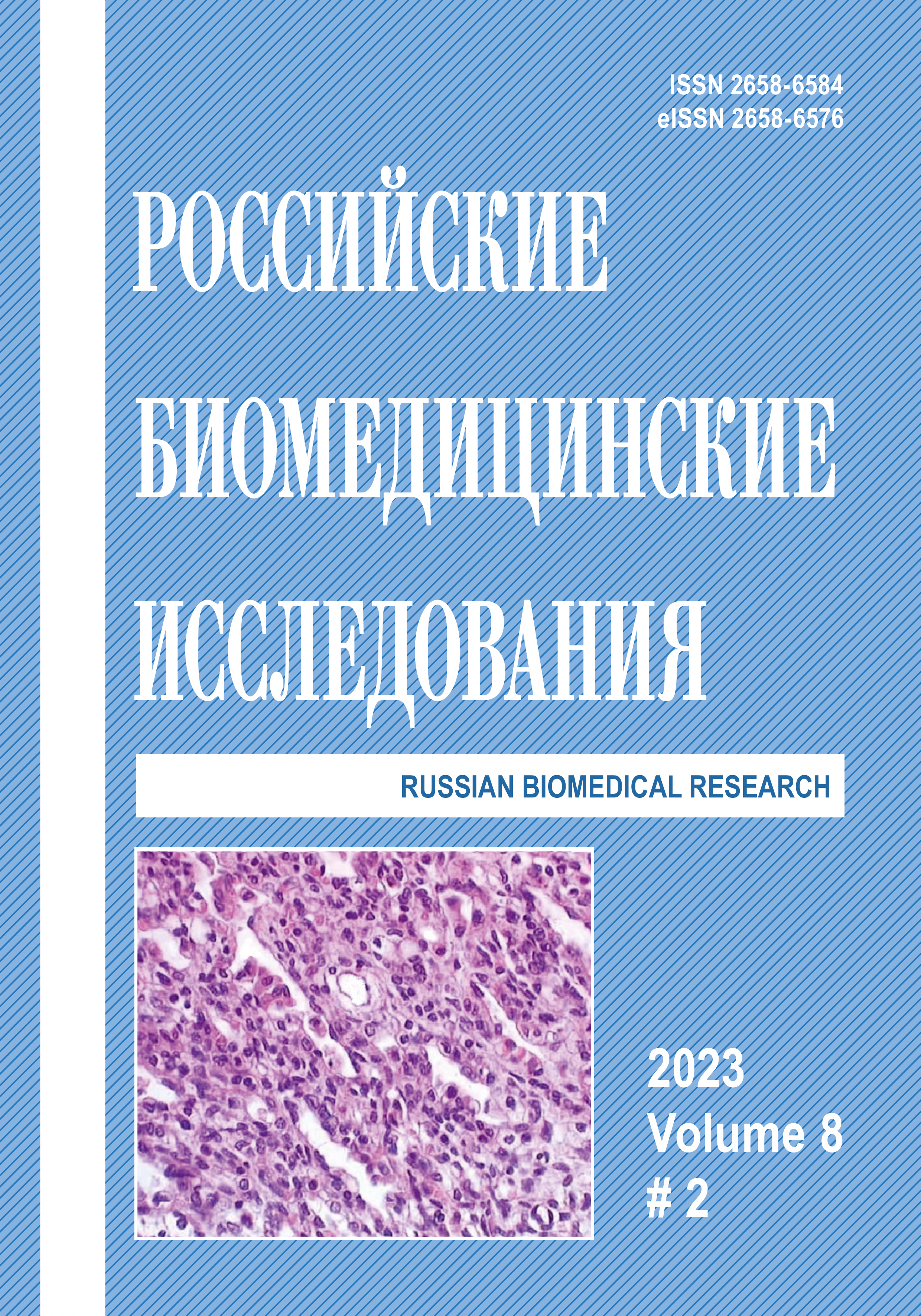PATHOGENETIC SIGNIFICANCE OF LAG-3 IN PATIENTS WITH COLORECTAL CANCER
Abstract
Background. The lymphocyte activation gene-3 (LAG-3) is involved in inhibiting the T-cell immune response. This mechanism is used by tumor cells to «escape» from immunity. The role of LAG-3 in carcinogenesis at various localizations requires further research. Aim. We aimed to assess LAG-3 level in blood serum and tumor tissue in patients with tumor of the colon. Materials and methods. The study was carried out in the Regional Oncology Dispensary in Chita and included 44 patients with colorectal cancer and 25 patients with benign tumor of the colon who were treated between 2019 to 2020. The control group comprised 25 patients who had been operated due to colon injury at the Regional Clinical Hospital in Chita. We determined LAG-3 concentration in blood serum, the supernatant of the homogenate of tumor tissue and lymph nodes using the flow cytofluometry method on the CytoFlex LX analyzer (Beckman Coulter, USA), using the LEGENDplex ™ HU multiplex analysis kit (Immune Checkpoint, USA). The statistical significance of the differences was determined by the nonparametric Mann-Whitney U test. Results. The level of LAG-3 in the blood serum of patients with colon cancer exceeded this indicator in the control group by 2.42 times (p = 0.02). The concentration of LAG-3 in the blood serum of patients with colorectal cancer was 2.39 times higher (p = 0.01) compared to the group of patients with benign colon tumor. LAG-3 level in tumor tissue in patients with colon cancer was 5.15 times higher (p < 0.001) than in the control group. The concentration of LAG-3 in the lymph node tissue in patients with malignant neoplasm was 835.2 pg/ml. Conclusion. The data obtained demonstrated an increase in LAG-3 level in blood serum in patients with colorectal cancer in comparison with the control group. There was also an increase in the concentration of LAG-3 in tumor tissue in patients with colorectal cancer. The obtained data can be used in the administration of targeted therapy for this group of patients.
Copyright (c) 2023 Russian Biomedical Research

This work is licensed under a Creative Commons Attribution 4.0 International License.



